Exploring Heroku alternatives can be an exciting venture for your projects, especially if you’re looking to find a service that aligns with your specific needs.
Heroku has been a popular Platform as a Service (PaaS) offering that makes deploying, managing, and scaling apps straightforward.
However, there are various reasons you might be on the hunt for another solution—whether it’s cost, specific features, or the desire for a different infrastructure setup.
The recent changes in Heroku’s pricing and service offerings, including the discontinuation of their free tier, has broadened the appeal of seeking out comparable platforms.
There are several viable Heroku alternatives that cater to a range of developers’ needs.
For instance, options like Cyclic and Railway provide easy-to-use environments for full-stack applications, some with generous free tiers suitable for smaller projects or startups.
On the other hand, platforms like DigitalOcean and AWS Elastic Beanstalk offer an infrastructure that can effortlessly scale with your growing applications.
Each alternative comes with its own set of benefits and potential drawbacks.
Your choice might depend on your familiarity with different tech stacks, the level of control you want over your environment, or the ease of migration from Heroku.
As you consider what’s best for your application’s requirements, remember that the ultimate goal is to find a hosting platform that not only offers a seamless transition but also enhances your app’s performance and user experience.
Popular Heroku Alternatives
When you’re exploring alternatives to Heroku for your app deployment and hosting needs, consider these industry-leading platforms that provide robust services and scalability options.
1. Google Cloud Platform
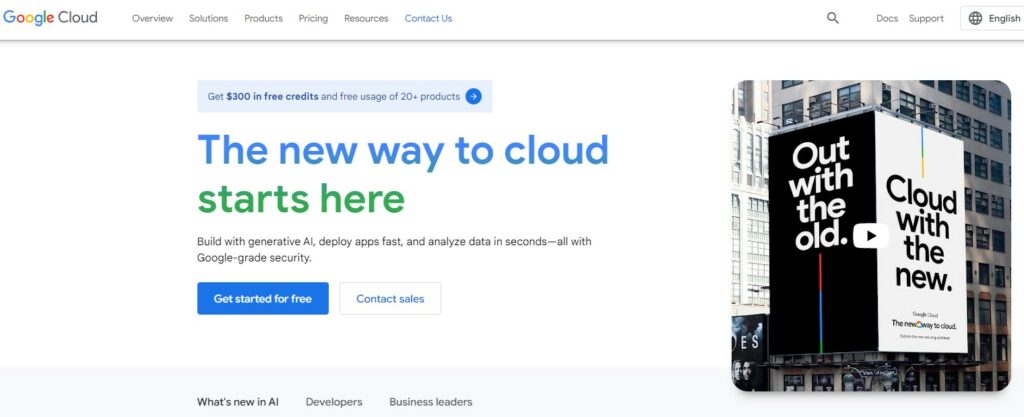
Google Cloud Platform (GCP) offers you a suite of cloud computing services that runs on the same infrastructure Google uses internally for its end-user products.
If you need scalable and highly available hosting solutions with a wide range of services including computing, storage, and machine learning capabilities, GCP might be the right fit for you.
2. Amazon Web Services
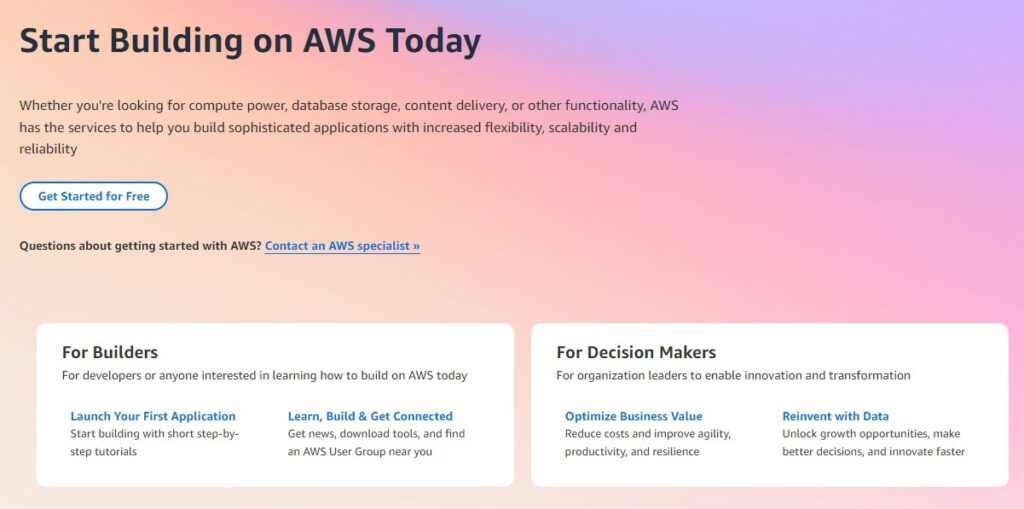
Amazon Web Services (AWS) is another powerful platform that gives you access to a broad set of infrastructure services such as computing power, storage options, and networking capabilities.
AWS services are designed to work together to provide scalable and efficient cloud solutions, and its Elastic Beanstalk is particularly known for easing the deployment and scaling of web applications.
3. Microsoft Azure
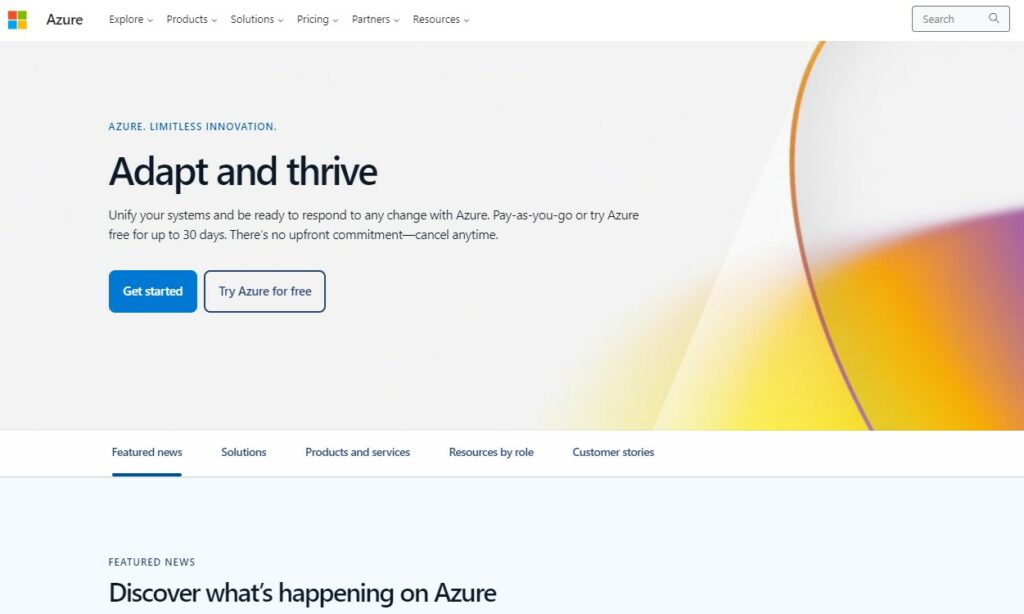
With Microsoft Azure, you get an extensive set of cloud services that can help you build, deploy, and manage applications across a global network of Microsoft-managed datacenters.
Azure supports a range of operating systems, programming languages, frameworks, databases, and devices, enabling you to leverage your existing tools and technologies.
Open-Source PaaS Solutions
Exploring open-source PaaS means you’re looking for cost-effective, customizable options to deploy and manage your applications.
Below are a few of the robust and community-driven platforms you can consider.
4. Dokku
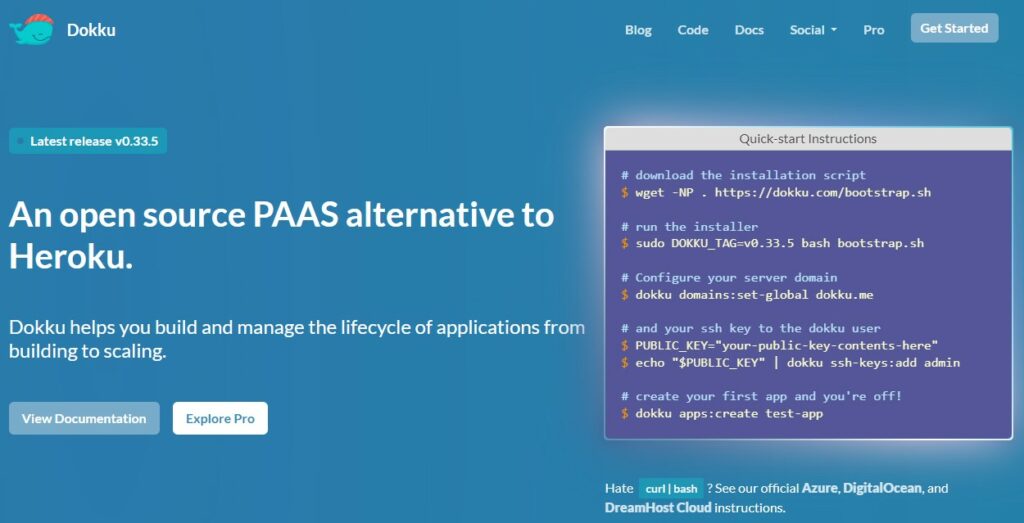
Dokku is often referred to as the smallest PaaS you might ever encounter.
It utilizes Docker containers and Heroku buildpacks to help you build and deploy applications in a way that’s similar to Heroku.
You have the ability to deploy to your own servers, and due to its lightweight nature, it suits those with simpler, less resource-intensive deployment needs.
- Installation Ease: Relatively simple, akin to setting up a single server.
- Resource Efficiency: Very efficient for small-scale applications.
5. OpenShift
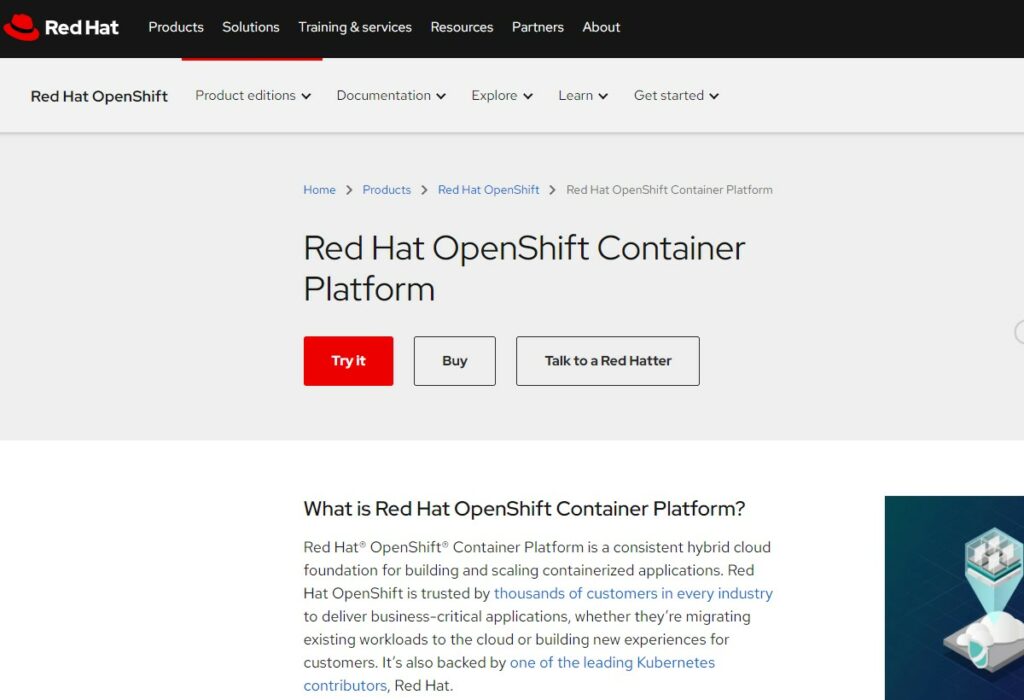
Originating from Red Hat, OpenShift is a powerful containerization software that offers much more than a typical PaaS.
It’s built on top of Kubernetes and Docker, which means it provides you with a comprehensive, scalable, and highly flexible platform to manage complex applications.
- Setup Complexity: Higher, suited for users with some technical expertise.
- Scalability: Excellent due to Kubernetes orchestration.
6. CapRover
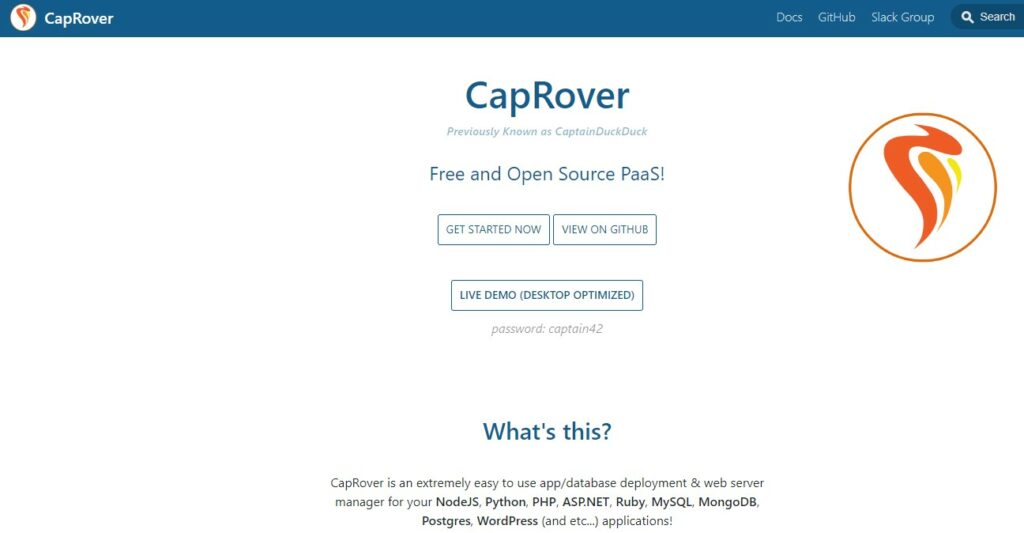
CapRover is an extremely easy to use PaaS with Heroku-like user experience.
It’s a self-hosted platform that you can install on your own server.
CapRover automates app deployments using Docker and lets you manage databases, storage, and more, all from an intuitive web interface.
- User Experience: Designed with simplicity in mind.
- Deployment: Quick and easy for a wide range of applications.
IaaS and PaaS Comparison
Infrastructure as a Service (IaaS) and Platform as a Service (PaaS) offer different levels of control and management that can significantly impact your application development needs.
Let’s explore how they stack up with regards to scalability, managed services, and customization.
Scaling Capabilities
IaaS: You are afforded more flexibility with IaaS when it comes to scaling your infrastructure.
As your application’s user base grows, you can increase your server count, enhance storage, or expand bandwidth.
For instance, with AWS, you might scale instances manually or automatically with Auto Scaling.
PaaS: PaaS providers like Heroku manage scaling for you, often with simple, one-click solutions.
This is great for ease of use, but might offer less granular control compared to IaaS solutions.
Managed Services
IaaS: Here, you’re responsible for managing the servers, storage, and networking.
But don’t worry – it gives you the freedom to customize your environment extensively.
Imagine IaaS as renting the land to build a house – you decide on the architecture.
PaaS: PaaS takes care of the infrastructure management.
It’s like living in a serviced apartment where you don’t need to fix a leaky pipe.
Heroku, for example, offers managed services that take care of server maintenance, patching, and updates.
Customization and Control
IaaS: Provides a high degree of customization.
You have complete control over your virtual machines, including the choice of the operating system.
IaaS like DigitalOcean gives you this granular control at the expense of having to manage more aspects yourself.
PaaS: PaaS solutions are more opinionated and may impose certain frameworks or architectures.
This can simplify the development process but may also limit your ability to make deep customizations.
Heroku, for example, allows quick deployment but within the confines of its platform’s capabilities.
Choosing the Right Platform

When you’re selecting a platform to host and run your applications, it’s essential to consider how it aligns with your project’s specific requirements, budget, and the kind of community and support you’ll need.
Project Requirements
To ensure the platform you choose meets your needs, you must first clarify the technical specifications of your project.
Scalability is critical if you anticipate your user base to grow.
Look for a platform that allows you to scale resources easily.
For instance, AWS Elastic Beanstalk and Google App Engine offer auto-scaling capabilities that adjust resources based on your traffic.
Moreover, if your project uses specific languages or frameworks, verify that the platform supports them.
Budget Considerations
Your budget plays a significant role in platform selection.
Different platforms have unique pricing models, such as pay-as-you-go or fixed monthly rates.
Perform a cost analysis based on your estimated resource usage.
Providers like Microsoft Azure and DigitalOcean App Platform offer calculators to estimate costs more accurately.
Here’s a brief look at potential cost factors to consider:
- Compute Resources: CPU, Memory, and storage requirements
- Bandwidth: Expected data transfer volumes
- Additional Services: Database, monitoring, and automation tools
Community and Support
The level of community involvement and support can greatly impact your experience with a platform.
A robust community means more resources for troubleshooting and learning.
Platforms like Heroku have large communities, which can be a benefit.
For professional support, some platforms may include it in their pricing, while others charge extra.
Here’s how you can evaluate the support:
- Documentation Quality: Well-maintained, clear, and comprehensive
- Community Forums: Active users and contributors to seek help from
- Support Plans: Availability of professional support and response times
Key Takeaways
| Feature | Consideration |
|---|---|
| Pricing | Free tiers, cost structures, and hidden costs |
| Language and Frameworks | Compatibility with your tech stack |
| Ease of Use | User interface, deployment processes |
| Scalability | Ability to handle growth and traffic spikes |
| Support and Community | Availability of documentation and community support |
- Variety of Options: You have numerous alternatives to Heroku for cloud-based application development and deployment.
- These services cater to different needs, be it specific language support or pricing models.
- Cost-Effective Alternatives: Many Heroku competitors offer competitive or even free plans, making them cost-effective choices for startups and individual developers.
- Enhanced Functionalities: Some alternatives provide unique functionalities that could be more aligned with your project requirements, such as advanced scaling or custom buildpacks.
- Language Support: Look for platforms that support the programming languages and frameworks you’re working with.
- Some excel in Ruby on Rails, while others are more flexible.
- Migration Considerations: If you’re migrating from Heroku, consider the ease of transition and whether the alternative platform has robust migration tools to simplify the process.
- Security: Be mindful of the security features as they’re crucial for protecting your applications and data.
By understanding and comparing these aspects, you can find the right cloud platform for your application needs.

